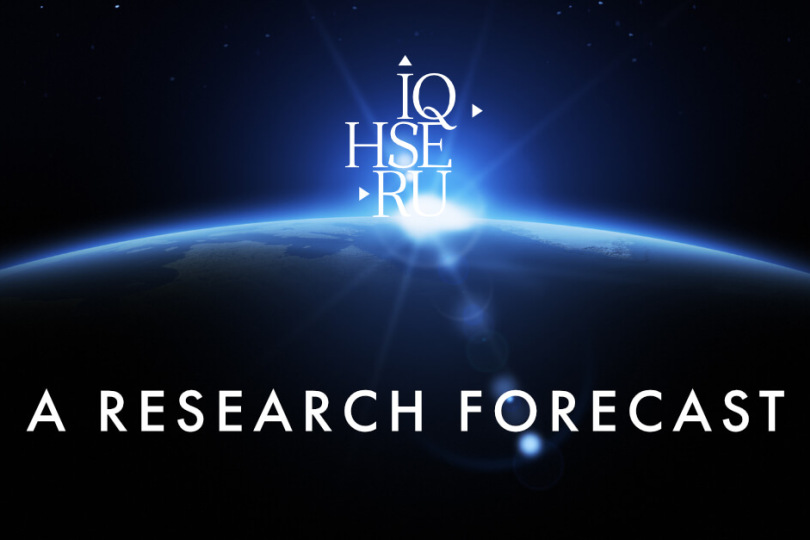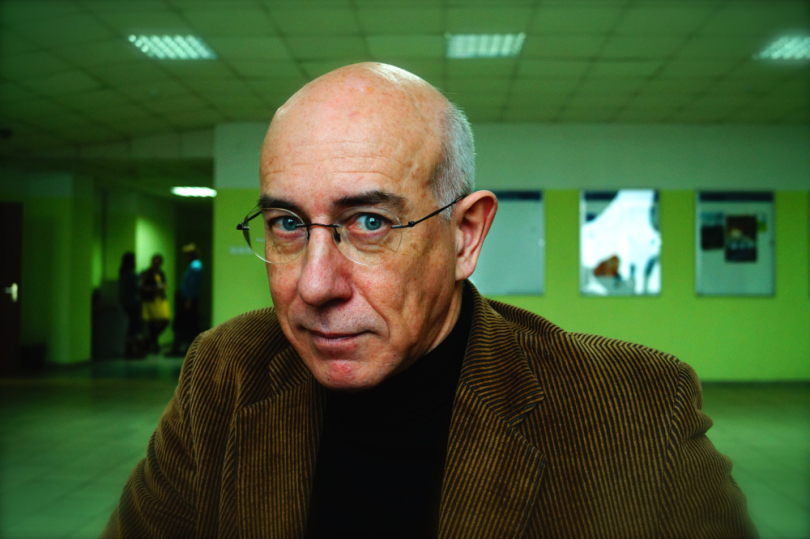Eight Most Unexpected HSE Research Findings of the Year
Sometimes the researchers’ findings might seem unusual. IQ.hse.ru publishes a compilation of the most unexpected results of the research carried out by HSE faculty or presented at HSE conferences in 2016.

What to Expect in 2017
On the eve of New Year’s, it is customary to take a look into the near future. We asked HSE experts in various fields to share their forecasts on which areas of research might be the most interesting and promising in 2017. They tell us about what discoveries and breakthroughs await us in 2017, as well as how this could even change our lives.
HSE Vysokovsky Graduate School of Urbanism Publishes New Journal
The new academic journal is entitled ‘Urban Studies and Practices’. The first issue came out this September. Now a call for papers for special issue on Migrants and the City has been announced. The deadline for submissions is January 31, 2017.
-%D1%81%D1%82%D1%83%D0%B4%D0%B5%D0%BD%D1%82%20%D0%BD%D0%B0%20%D0%BF%D0%BE%D0%BB%D1%83%20%D0%B7%D0%B0%D0%BA%D1%80%D1%8B%D0%B2%D0%B0%D0%B5%D1%82%D1%81%D1%8F%20%D0%BA%D0%BD%D0%B8%D0%B3%D0%BE%D0%B9.jpg)
How to Avoid Study Burnout
During the first year of studies, students already often feel disappointed and exhausted. Such burnout in freshman students can be caused by many reasons, such as an abundance of tasks, new classmates, the ‘wrong’ subjects, and even comments left by classmates on social media. Not everyone can manage their reactions to these situations.
-%D1%81%D0%BE%D0%BD-%D0%BF%D1%8F%D1%82%D0%BA%D0%B8.jpg)
HSE Researchers Uncover Why Morning People Should Not Work at Night
It has been known for a long time that early risers work less efficiently at night than night owls do. But researchers from the Higher School of Economics and Oxford University have uncovered new and distinctive features between the night activities of these two types of individuals. At night, early risers demonstrate a quicker reaction time when solving unusual attention-related tasks than night owls, but these early risers make more mistakes along the way.
-%D1%82%D0%B5%D1%81%D1%82%D0%BE%D1%81%D1%82%D0%B5%D1%80%D0%BE%D0%BD%20%D0%B8%20%D0%BA%D1%80%D0%B5%D0%B4%D0%B8%D1%82%D0%BE%D0%B2%D0%B0%D0%BD%D0%B8%D0%B5-%D0%BF%D1%80%D0%BE%D0%B1%D0%B8%D1%80%D0%BA%D0%B0.jpg)
Hormone Levels Influence Demand for Financial Services
The integration of economics and biology is an emerging trend in 21st century science. A number of studies were published in the early 2000s exploring the effects of psycho-physiological variables, such as hormone levels, on individual performance in various fields. Several papers have associated the ratio of second digit (index finger) to fourth digit (ring finger) length (2D:4D ratio) with exposure to prenatal testosterone, the male hormone produced by the maternal body and influencing the foetal development.
HSE Acknowledged as Most Cited Russian University in 2016
Clarivate Analytics (formerly Thomson Reuters Intellectual Property & Science business) has awarded the most influential Russian researchers and research centres.
'I Am Happy the Conference on Caucasian Languages Finally Took Place in Moscow'
At the end of November, HSE School of Linguistics hosted the Uslar Conference — an international event for scholars studying the Caucasian languages. Participants and organizers have shared their impressions with HSE News.
-%D0%BC%D0%BE%D0%B7%D0%B3%20%D0%B8%20%D0%B6%D0%B5%D0%BD%D1%89%D0%B8%D0%BD%D0%B0.jpg)
Fishing Easier Than Swimming
HSE researchers found different patterns of brain activity involved in processing instrumental and non-instrumental verbs.

'HSE Linguistics Students Have Really Good Methodological Background'
Professor Geeraerts visited HSE School of Linguistics in November to deliver a course on cognitive sociolinguistics for students of Bachelor's programme in Fundamental and Computational Linguistics and Master’s programme in Linguistic Theory and Language Description and hold individual consultations. The visit was initiated by Nina Dobrushina (School of Linguistics). Prof Geeraets has also been long acquainted with Ekaterina Rakhilina, the Head of the School of Linguistics.

